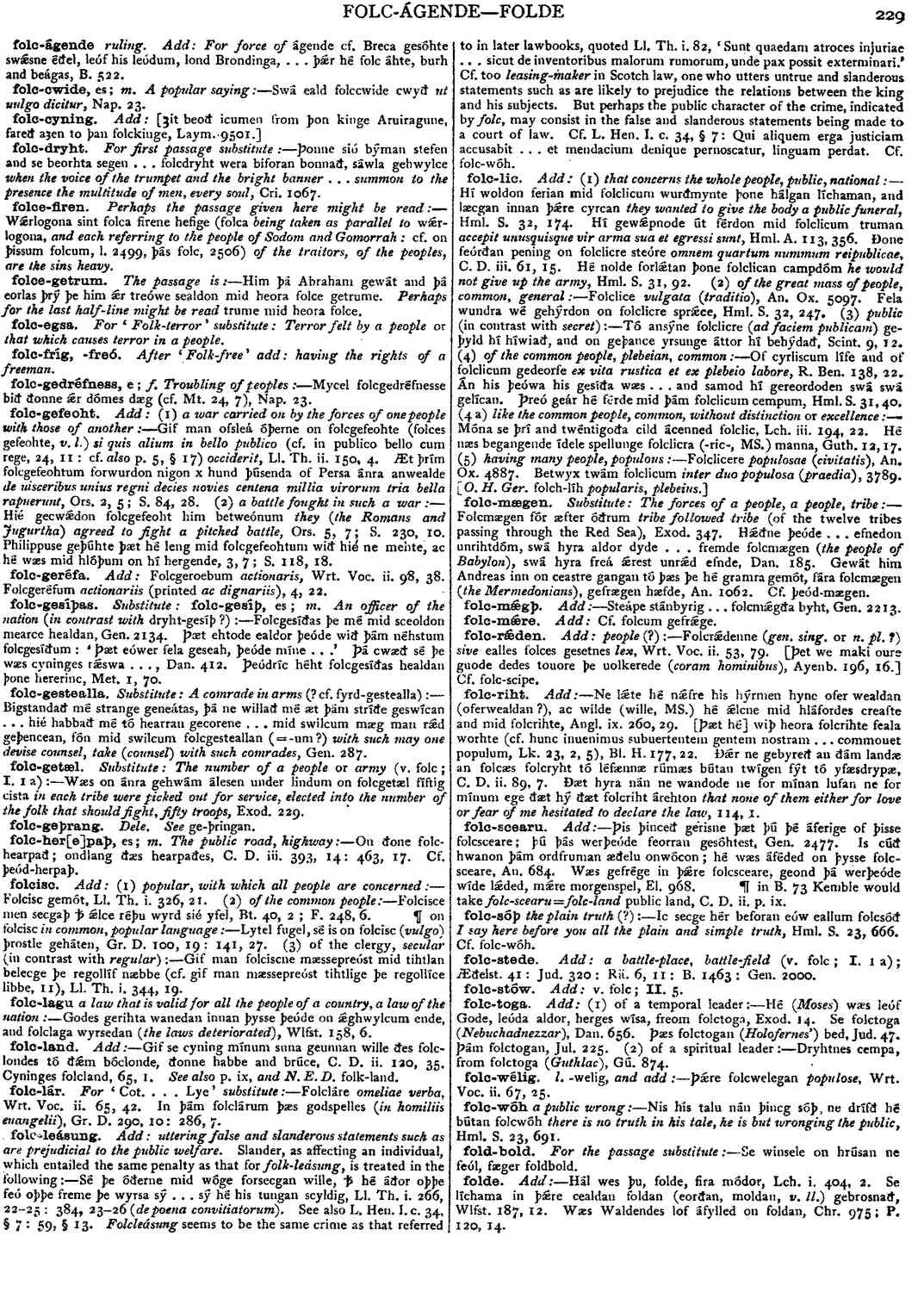folc-leásung
-
Sé þe óðerne mid wóge forsecgan wille, ꝥ hé áðor oþþe feó oþþe freme þe wyrsa sý . . . sý hé his tungan scyldig,
- Ll. Th. i. 266, 22-25 :
- 384a 23-26
(depoena convitiatorum).
- See also
- L. Hen. I. c. 34, § 7 :
- 59, § 13
Folcleásung
seems to be the same crime as that referred to in later lawbooks, quoted Ll. Th. i. 82,'Sunt quaedam atroces injuriae . . . sicut de inventoribus malorum rumorum, unde pax possit exterminari.
Cf. too leasing-maker in Scotch law, one who utters untrue and slanderous statements such as are likely to prejudice the relations between the king and his subjects. But perhaps the public character of the crime, indicated by folc, may consist in the false and slanderous statements being made to a court of law.- Cf.
- L. Hen. I. c. 34, § 7 :
Qui aliquem erga justiciam accusabit . . . et mendacium denique pernoscatur, linguam perdat.
Bosworth, Joseph. “folc-leásung.” In An Anglo-Saxon Dictionary Online, edited by Thomas Northcote Toller, Christ Sean, and Ondřej Tichy. Prague: Faculty of Arts, Charles University, 2014. https://bosworthtoller.com/45353.
Checked: 1